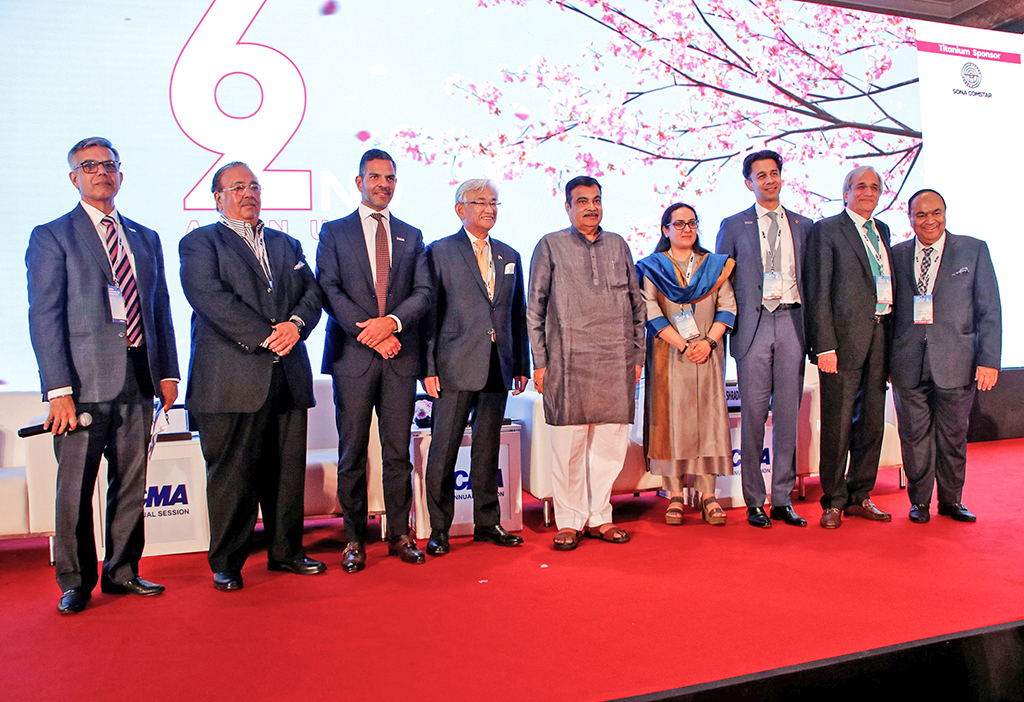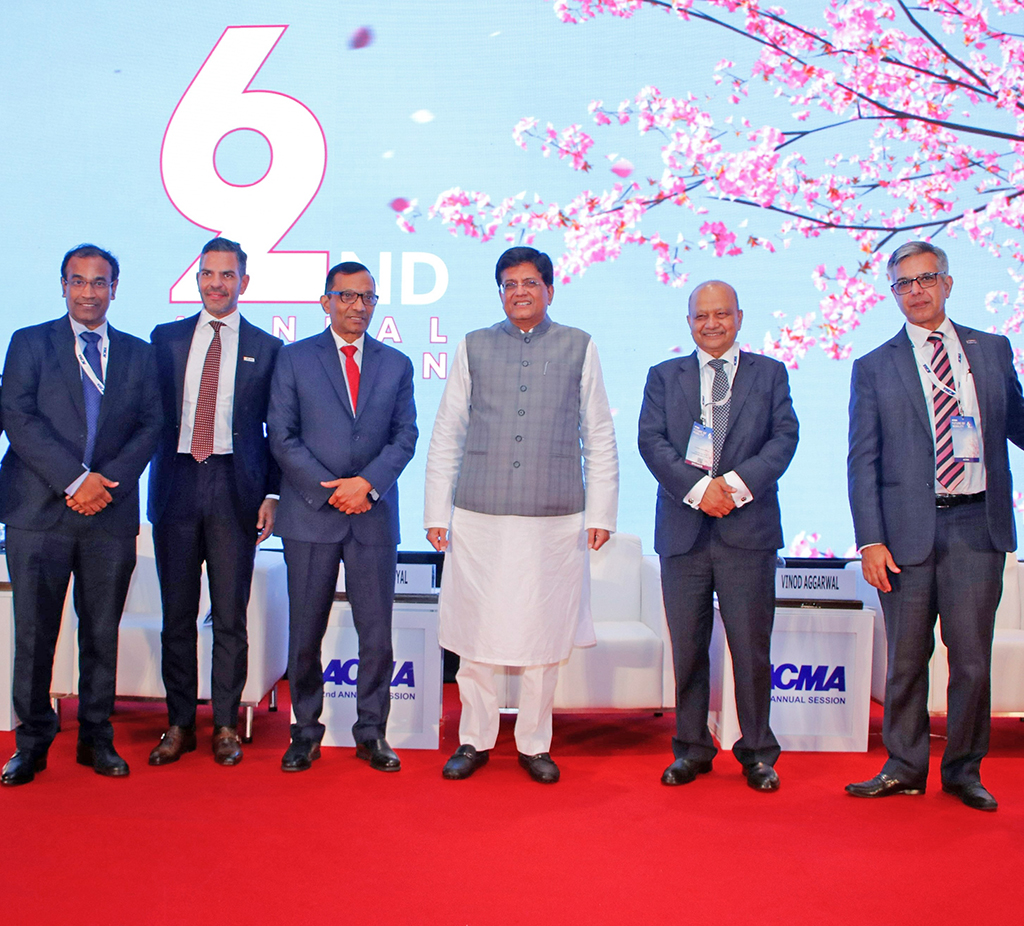The Automotive Component Manufacturers Association (ACMA), the apex body of the Indian auto component industry successfully hosted the 62nd edition of its Annual Session themed ‘Future of Mobility – Transforming to be Ahead of the Opportunity’ on September 14. The highly successful event witnessed participation by over 2,000 delegates from OEMs, Government Officials, Component Manufacturers and other stakeholders.

The chief guests for the coveted event were Nitin Gadkari, Union Cabinet Minister for Road Transport & Highways, Piyush Goyal, Union Minister for Textiles, Commerce & Industry and Consumer Affairs, Food & Public Distribution, and Amitabh Kant, Sherpa G-20. Other notable industry leaders included Kenichi Ayukawa SIAM President, and MD & CEO, Maruti Suzuki India and Dr. Pawan K. Goenka, Chairman SCALE committee & Chairman INSPACE, Dept. of Space.
A joint research report by ACMA and McKinsey & Co., was also released during the event, themed on ‘Future of Mobility – Transforming to be Ahead of the Opportunity’. The study provides a glimpse into the push for clean mobility and corresponding growth in the adoption of electric vehicles (EVs), that could disrupt the automotive landscape over the course of the decade. The report also highlights that India is likely to witness increased penetration of 2W & 3W than passenger vehicles and heavy Commercial Vehicles.

Inaugurating the 62nd ACMA Annual Session, Amitabh Kant, said, “The Automotive Component industry is a key driver of India’s growth story. With the emergence of green mobility solution, there is lot more opportunity for the industry to collaborate, innovate, and grow. I believe India’s electrification transformation will be led by 2W & 3W and the industry needs to focus on 100% electrification for these categories of vehicles. The automotive industry needs to take a lead amidst the disruption happening globally in the green mobility space. I strongly believe with introduction of schemes like PLI for automotive sector, we would soon be manufacturing battery cells and packs at affordable cost in India.”
Addressing the session, Piyush Goyal said, “Companies and investors across sectors are looking towards the great India opportunity. Despite several challenges during the pandemic, the automotive industry has shown remarkable resilience and has bounced back to pre-pandemic level of growth. The government is doing everything possible to support and encourage the industry and has already put in place Schemes like PLI to encourage exports. I am sure such policies will expand India’s footprint in international waters and would transform the nation as a leading components supplier to the world”.
Encouraging the component industry leaders present during the event, Nitin Gadkari, said, It gives me immense pleasure to know that component industry is a big contributor to manufacturing output for the nation. It holds massive potential for employment generation and a hub for providing mobility solutions to the world. Emphasizing on research & innovation, he prodded the industry leaders to invest more in new technology, encourage & collaborate with start-ups and adopt successful practices. Further emphasizing upon the importance of EV’s, Flex fuel vehicles and future mobility solutions, he asked the industry to work towards inclusive, greener and cleaner manufacturing practices”.
Commenting on the industry transformation, Sunjay Kapur, ACMA President, said, “The automotive and auto-ancillary industry has demonstrated great resilience over the last two years. I am happy to report that the industry has registered a strong recovery in FY2022, despite several challenges. The industry is at an inflection point and portends an opportunity of massive growth.
The world is fast moving towards sustainable development driven by the need to reduce carbon footprint and also to meet the challenges of the environment and climate change. As a responsible industry, the auto and the auto component industry and all other stakeholders across the automotive value chain will need to shoulder their responsibility well by transitioning to zero-emission products and business models that are sustainable, aligned to circular economy, and have minimal adverse impact on the environment.”